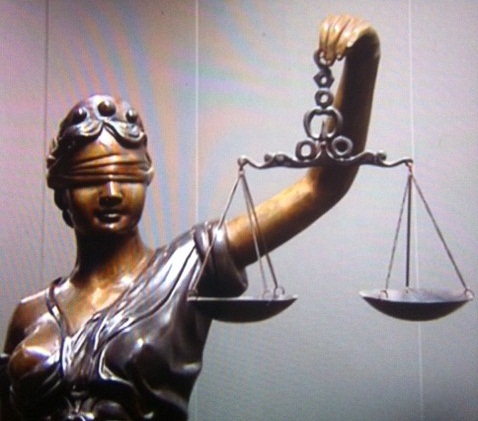Directorate of e-Court
( Note: for privacy reasons information given below may be fictious. Members will have access to the actual roster )


J.B
J.B Areas of Practice: Contracts Law, Corporate Law, Real Estate, Civil Law and Litigation, Criminal Law and Litigation, Labor Law and Arbitration, General Litigation. J.B Education & Professional Background: Admitted, China National Bar, 2005 Yunnan University, LL.M., 2002 Xinjiang Shihezi University, LL.BH.A
H.A received graduate and undergraduate degrees in The Netherlands and Canada (McGill). Worked in several countries such as the UK, the Netherlands and Canada. His field of specialization covers finance, administration and the media. H.A invites you to join him at LinkedIn
Chinese law
Posted by wikipedia.org

Chinese law is one of the oldest legal traditions in the world. In the 20th and 21st century, law in China has been a complex mix of traditional Chinese approaches and Western influences.
For most of the history of China, its legal system has been based on the Confucian philosophy of social control through moral education, as well as the Legalist emphasis on codified law and criminal sanction. Following the Revolution of 1911, the Republic of China adopted a largely Western-style legal code[citation needed] in the civil law tradition (specifically German-influenced). The establishment of the People's Republic of China in 1949 brought with it a more Soviet-influenced system of socialist law. However, earlier traditions from Chinese history have retained their influence, even to the present.
Law in the People's Republic of China is currently undergoing gradual reform, as many elements inside and outside the country emphasize the need to strengthen the rule of law in China, and international trade and globalization spur transformations in various areas of Chinese domestic law.
The word for law in classical Chinese was fa. The Chinese character for fa denotes a meaning of "fair", "straight" and "just", derived from its water radical. It also carries the sense of "standard, measurement, and model".[1] Derk Bodde and Clarence Morris held that the concept of fa had an association with yì: "social rightness").[2] Yan Fu, in his Chinese translation of Montesquieu's de l'esprit des lois published in 1913, warned his readers about the difference between the Chinese fa and Western law: "The word 'law' in Western languages has four different interpretations in Chinese and zhì .
A term which preceded fa was xíng, which originally probably referred to decapitation. Xíng later evolved to be a general term for laws that related to criminal punishment. The early history Shang Shu recorded the earliest forms of the "five penalties": tattooing, disfigurement, castration, mutilation, and death. Once written law came into existence, the meaning of xíng was extended to include not only punishments but also any state prohibitions whose violation would result in punishments. In modern times, xíng may be understood in the sense of penal law or criminal law. An example of the classical use of xíng is Xíng Bù for the legal or justice department in imperial China
. The two major Chinese philosophical schools discussed below, Confucianism and Legalism, strongly influenced the idea of law in China. Briefly, under Confucianism, the state should lead the people with virtue and thus create a sense of shame which will prevent bad conduct. Under Legalism, law is to be publicly promulgated standards of conduct backed by state coercion. The tension between these two systems is that Confucianism relies on tradition to make the leader the head of household of all China, while Legalism makes standard law that even the emperor should be bound by. The common factor is that both endorse to different degrees a paternalistic conception of the state, which knows better than its citizens and makes laws to protect them. This concept persisted throughout the imperial period, into the republican period, and can still be seen acting today.
-
TOPICS:
- ABOUT e-COURT
- home
- preliminary information
- introduction ( About us )
- benefits
- scope of legal areas
- DIRECTORATE
- supervisory board
- advisory council
- originating partners
- e-Court & ADRpartners
- articles of operation
- privacy
- legal information
- copyright
- in the news
- ( e-Court versus ADR )
- costs
- frequently asked questions
- OFFLINE NETWORKING
Endorsements ( 1/2000 + ):
- Patricia M. Swerhone
Waters and Associates, Barristers & Solicitors, Toronto - Kenneth J. Byrne
Immigration and Real Estate Lawyer at Benson Buffett, Newfoundland And Labrador - Amy M. Crosbie
Partner at Curtis, Dawe, Newfoundland And Labrador - Justice Clark
Partner at Simmons Da Silva + Sinton LLP, Toronto - Stanley Potter
Owner, Stanley J. Potter, Barrister & Solicitor, Toronto - Amy M. Crosbie
Partner at Curtis, Dawe, Newfoundland And Labrador - Kenneth J. Byrne
Immigration and Real Estate Lawyer at Benson Buffett, Newfoundland And Labrador - Justice Clark
Partner at Simmons Da Silva + Sinton LLP, Toronto - Stanley Potter
Owner, Stanley J. Potter, Barrister & Solicitor, Toronto - Beth A. Sheppard
Shareholder/Director, Benson Buffett PLC Inc., Newfoundland And Labrador - Tony Lafazanis
Personal injury lawyer at Tony Lafazanis, Toronto, - Steve A.
Lawyer at Defend Your Points - Traffic Ticket Lawyers, Toronto - Joseph W.J. F.
General counsel at Law Office, New Brunswick, Canada - Diana McGuire
Foord and Davies Law Firm, Ottawa - ( Endorsements continued.....)















